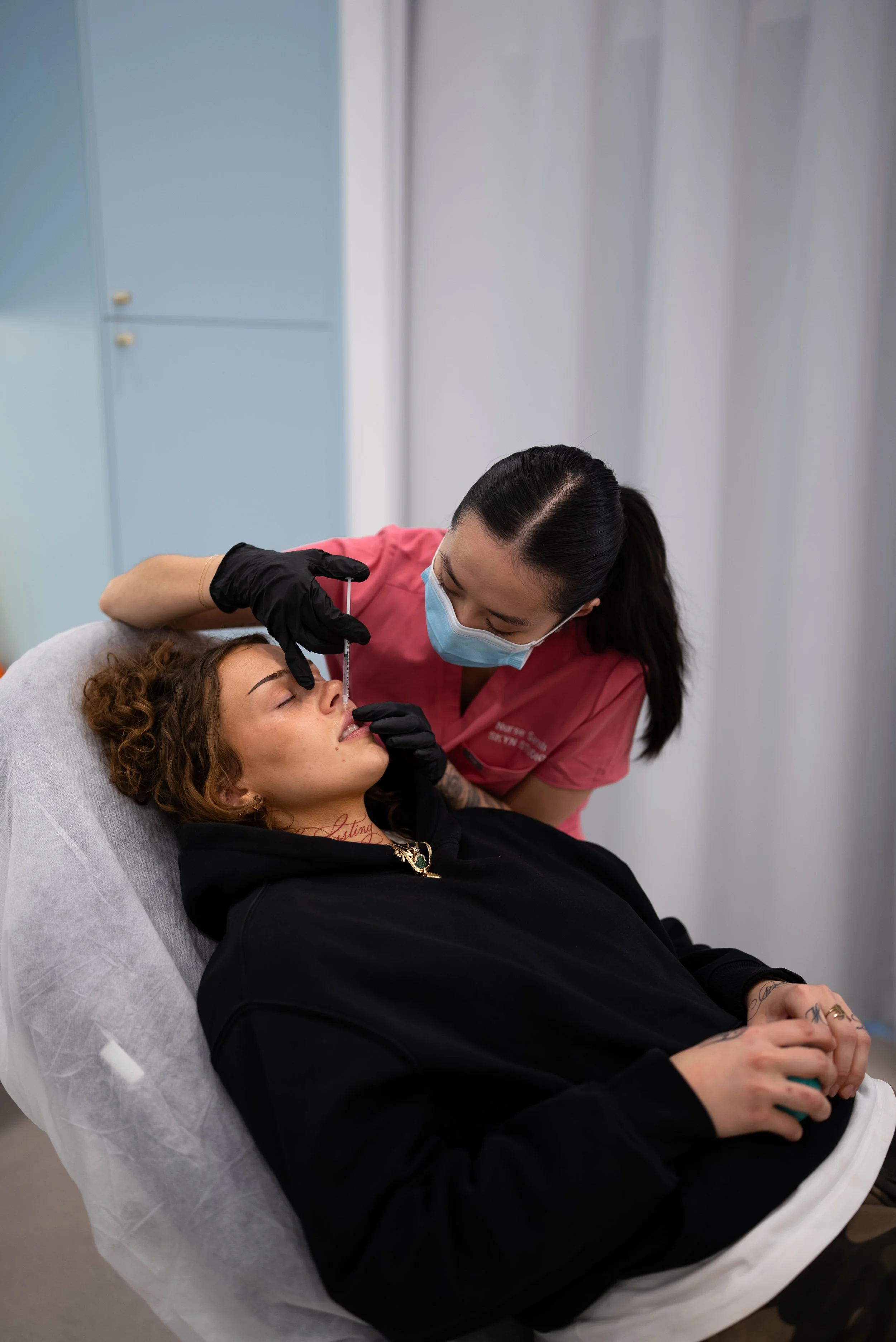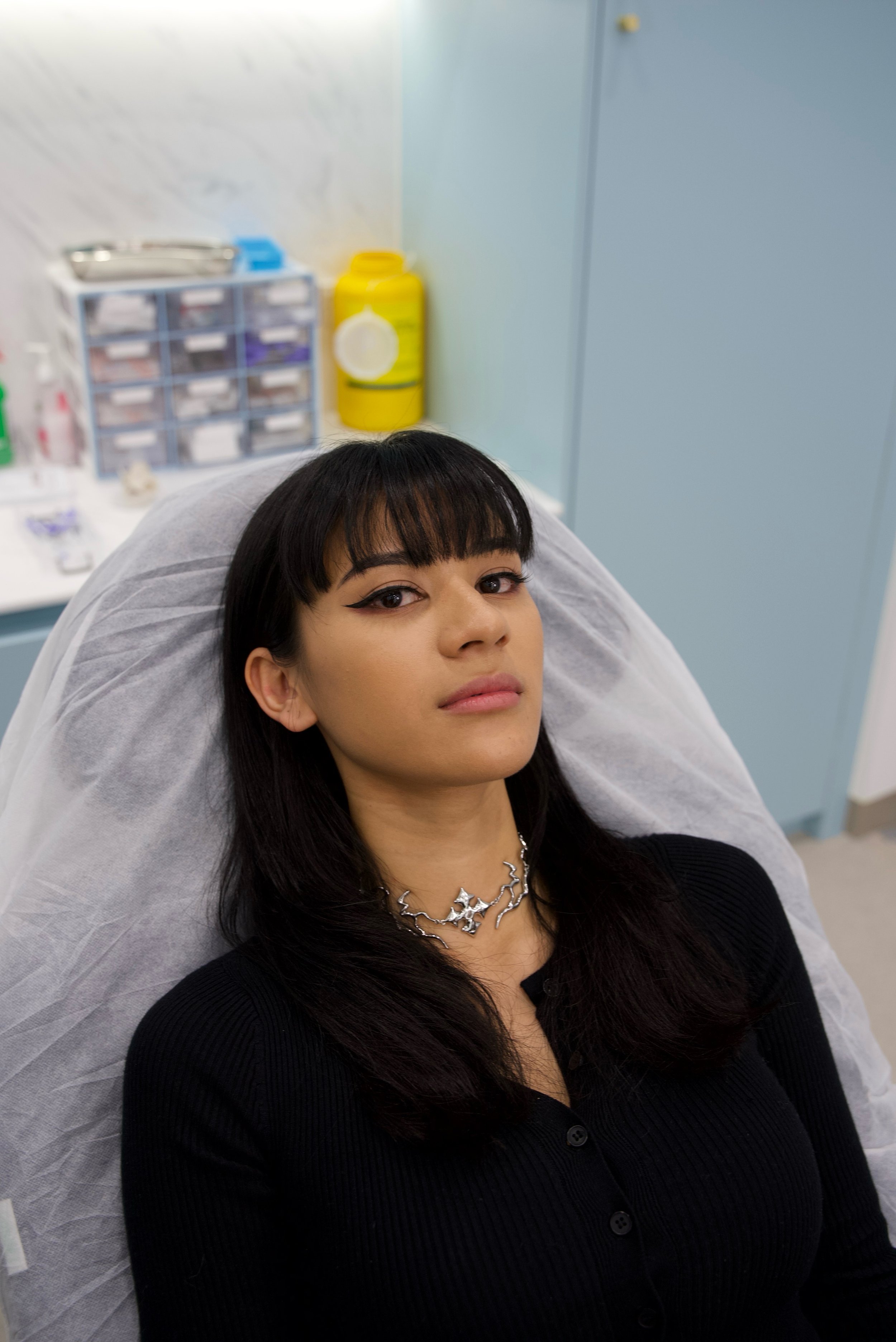Cold Sores and Lip Cosmetic Treatments: What You Need to Know Before Your Appointment
If you’re considering a cosmetic lip procedure and have a history of cold sores (herpes simplex virus), you’re not alone and you’re right to be cautious. Understanding how to manage the risk of an outbreak before treatment is important for both comfort and safety.
This blog explains who’s at risk, why cosmetic treatments can trigger a flare-up, and how to reduce the likelihood of developing a cold sore post-treatment.
What Are Cold Sores?
Cold sores, or oral herpes, are small, fluid-filled blisters caused by the herpes simplex virus type 1 (HSV-1). Once you’ve had the virus, it stays dormant in your body and can reactivate due to factors such as stress, sun exposure, illness, or trauma to the lips or surrounding tissue.
Why Cosmetic Treatments Can Trigger Cold Sores
Procedures like lip fillers, lip blush, or even microneedling around the mouth can stimulate nerve endings or temporarily disrupt the skin barrier. For individuals who carry HSV-1, this can trigger a flare-up, even if you haven’t had a cold sore in years.
This is why it’s crucial to inform your treating clinician if you’ve ever experienced cold sores even just once.
Are You at Risk?
You may be at risk of a cold sore outbreak after a cosmetic procedure if:
You’ve had cold sores in the past, even as a child
You experience regular or seasonal flare-ups
You are feeling run-down, unwell, or stressed
You’ve recently had sun exposure or another known trigger
Even a single past occurrence is enough to consider preventative action.
How to Prevent a Cold Sore After Treatment
To reduce the risk of developing a cold sore after a procedure, your clinician may recommend prophylactic antiviral medication. One common over-the-counter option is:
Famciclovir 1500 mg (3 tablets taken at once) the day before or on the day of treatment
Alternatively, prescription options may include:
Valaciclovir (Valtrex) 500 mg – 1000 mg taken once or twice daily, starting 1–2 days before and continuing for a few days after treatment
The exact dosage and choice of medication will depend on your individual risk level and health profile. Always consult a doctor or pharmacist before starting any medication.
What If You Forget to Take It?
If you realise you forgot to take your prophylactic treatment close to your appointment, let your clinician know. They may be able to reschedule your treatment or advise on a modified approach to reduce your risk.
Can You Still Get Treatment If You Have an Active Cold Sore?
No treatment should be postponed until the cold sore is fully healed. Performing lip injections or cosmetic procedures while a cold sore is present can spread the virus, delay healing, and increase complications.
What We Do at TT Aesthetics
At TT Aesthetics, your safety is our priority. That’s why:
We ask all patients about cold sore history during consultation
We provide guidance on antiviral medication, including over the counter options like famciclovir 1500 mg
We postpone treatment if there is an active outbreak
We tailor post-care instructions for high-risk clients
Our goal is to deliver beautiful, balanced results without compromising your health or comfort.
Final Word
Cold sores are common, manageable, and should not prevent you from enjoying cosmetic treatments. The key is proactive care. If you’re prone to outbreaks, taking antiviral medication before your treatment can significantly reduce your risk of complications and support a smooth recovery.
This information is intended for educational purposes only and should not replace medical advice. Please consult with a registered healthcare professional to determine the best course of action based on your personal medical history.
To learn more or to book a consultation with a qualified expert, book TT Aesthetics.






